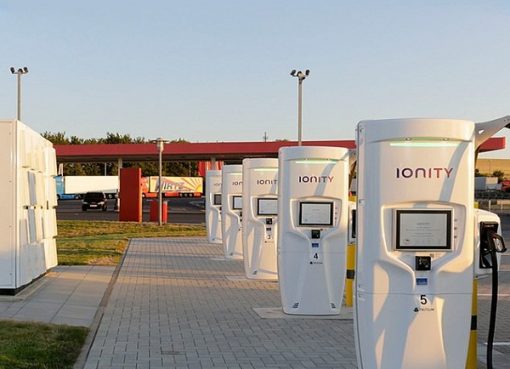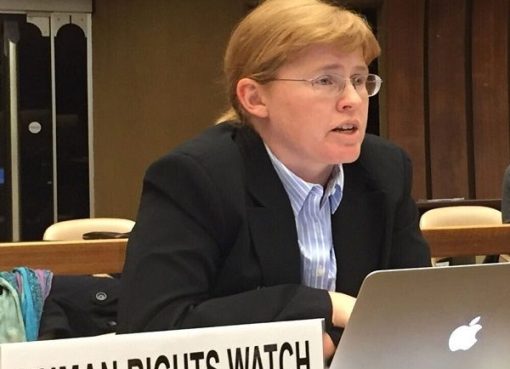The telecommunication industry in Nigeria has developed to be very competitive, as different telecom companies jostle for the attention of subscribers. However, one of the key challenges confronting these companies is how they manage their service quality, which means a great deal to customer satisfaction.
Customer satisfaction is the most important factor in telecom services. Service quality can be a better instrument for forecasting the customer satisfaction. From Lagos to Abuja, Ondo to Port Harcourt, Jos to Enugu, Borno to Sokoto, the quality of service, especially from the GSM operators, the quartet of MTN, Globacom, Airtel, and 9Mobile leaves much to be desired.
As at December 2019, Nigeria can boast of 184.6 million active subscribers, with investments in excess of $70billion. However, checks have shown that customers are angry with operators. In fact, the level of satisfaction has dropped significantly.
A Nigerian Communications Commission (NCC) report showed that subscribers nationwide lodged 19,977 complaints against Mobile Network Operators (MNOs) between January and October 2019.
The grievances, which were reported on four dedicated channels of the NCC, had to do with billing; call centre/customer care; quality of service/experience, sales promotions and advertisement, among others.
Regarding quality of service in respect to voice and data, telephone users complained of call interference; dropped calls; inability to receive calls; call divert; call barring; persistent data depletion; poor signal/no network, to mention a few.
The analysis of a document, titled: “Trend Analysis on Complaint Received from January to October 2019 in Consumer Affairs Bureau,” showed that NCC received 18,717 complaints via the 622 channel; 764 through the consumer portal; 315 via social media, and 181 written words. Of the 19,977 complaints, NCC was able to resolve 13,282, while others are pending.
What is fueling poor services?
Both the regulator and operators are seriously disturbed about the continuous decline in service quality, despite the level of investments that had gone into upgrades and expansion of facilities. Only recently, MTN said it will further invest $1.6 billion in Nigeria in the next three years. Also, 9Mobile projects to invest $220 million, though in tranches to support its expansion plan in the country.
Explaining the challenges, the Chairman, Association of Licensed Telecommunications Operators of Nigeria (ALTON), Gbenga Adebayo, said so many issues are currently confronting telecom operations. These, according to him, include vandalism, theft of fuel and equipment, fibre cuts, and multiple taxes.
Adebayo said the failure of Nigeria to make telecoms infrastructure a Critical National Infrastructure (CNI), has remained a big blow to ensuring services improve.
He pointed out that only recently, insurgents attacked telecom facilities in Damaturu, Yobe State, noting that acts like that would continue to create development gaps in the sector.
Corroborating Adebayo’s claims, the Director of Corporate Communications & CSR, Airtel Nigeria, Emeka Opara, said the Federal Government must urgently deal with the menace of vandalism, insecurity and insurgency, otherwise the current spate of dropped calls being experienced by some telecommunications consumers will persist.
Oparah noted that the declaration of telecoms infrastructure as CNI by the government would go a long way in helping to safeguard telecoms infrastructure, adding that Airtel alone recorded 1022 cases of fibre cuts between July 2019 and February 11, 2020.
According to him, 405 cases of the fibre cuts were as a result of road rehabilitation activities by construction companies, while 617 cases were due to vandalism.
Oparah, therefore, pleaded that the government should come to the aid of telecoms operators, as these activities result in dropped calls, poor network quality, network congestion, and poor user experience for telecommunications subscribers across the country.
He also urged the federal and state governments to hasten the approval process for the right of way for fibre deployment as well as quicken the Environmental Impact Analysis (EIA) approval process, noting that these actions would help solve the problem of network congestion and network failure.
Low infrastructure contributes
The President, Association of Telecommunications Companies of Nigeria (ATCON), Olusola Teniola, said one of the major contributors to service downtime remains low infrastructure.
He said the about 32,000 Base Transceiver Stations (BTS) in the country are not sufficient to serve the millions of people and other sub-sectors that require the services of the telecom sector.
As such, he said Nigeria would need about 50,000 more BTS for effective service delivery.He also decried the poor state of electricity supply in the country, stressing that efficient power system is critical to quality telecom services.
According to NCC, about 52,160 BTS, and collocation towers have been deployed in Nigeria in the last 15 years.Out of this, as at December, 2018, the total base stations owned by mobile telecoms operating companies increased to 30,637 from 30,598 in December, 2017 across all states of the federation, representing an increase of 6.02 per cent over 2017.
As at December, 2018, MTN owns the highest number of base stations standing at 14,715 base stations; Airtel – 7,966; Glo – 7,244; Ntel – 562; EMTS (9Mobile) – 148, and Smile – two base stations.
In terms of geographical spread of this major telecoms infrastructure, the 2018 Subscriber/Network Data Report compiled by NCC, showed the top five states with highest number of base stations are Lagos – 4,764; Ogun – 1,931; Rivers – 1,676; FCT – 1,684; and Oyo – 1,303. States with the least number of base stations are: Yobe – 205; Zamfara – 223; Gombe – 286; Jigawa – 289; and Kebbi – 298.
What is NCC doing to bridge the QoS Challenge?
Admitting the industry is challenged, NCC Director, Technical Services, Bako Wakil, said in Nigeria, network infrastructure are being vandalised and this has resulted into high rate of drop calls on the network.
According to him, reports have reached NCC about batteries being stolen, communities denying operators regular maintenance of base stations, theft of diesel and fibre cuts. “If you put all these together, there will be a rise in dropped calls. I must also say that handsets that are not type-approved by NCC have flooded the market, and contributing significantly to cases of poor quality of service.”
Wakil, an engineer, said the NCC is working with the National Assembly, other ministries and security agencies to ensure that the bill at the Assembly is passed into law, and offenders are prosecuted.
According to him, NCC will ensure services are improved by ensuring that the environment becomes conducive.Beyond this, the Commission is taking several steps aimed at continuously improving QoS despite the environmental challenges.
According to the Executive Vice Chairman of NCC, Prof. Umar Danbatta, some of these steps include monthly engagement sessions with operators on QoS. These engagement sessions assess the monthly Key Performance indicators (KPI) of operators, identify areas of challenges, get feedback of previously identified shortcomings from operators, assess progress made, and set deliverables for next engagement session.
Danbatta noted that there is a quarterly industry working group meeting, where areas of challenges facing licensees are also identified and areas that government need to intervene are also identified. These include areas like theft of telecom equipment on site, vandalisation of equipment, illegal site shutdown by government agencies and communities.
The EVC informed that the Commission also engages the Nigerian Governors forum (NGF), to align the right of way charges in line with agreement in the National Economic Council resolution.Other NCC interventions include engagement with individual governors to reduce and eliminate the incidence of site shutdown by state government agencies.
The Commission also assesses likely impact of promos on operators’ networks before approval is granted. Promos approval is denied if QoS impact is assessed to be negative.
NCC also initiated the mobile number portability (MNP) scheme to create an incentive for operators to invest in their networks and provide offerings aimed at attracting subscribers of other networks to theirs. Subscribers are also able to seamlessly move out of any network they are unsatisfied with its QoS delivery to a network that provides better QoS. Since network capacity constraint is identified as a major source of poor performance, the NCC has mandated and received network expansion plans from all the operators for the current year, and will monitor strict compliance and implementation.
Going forward
According to telecoms expert, Kehinde Aluko, no operator desires to have poor QoS, because if this persists on their network, they are aware of the availability of portability, which allows customer flight to rival networks. Aluko said he believes the regulator is not sleeping, and taking active measures to address the challenges faced by the operators.
“Through effective collaboration of all stakeholders, and monitoring of compliance to existing regulations, I also believe that the Minister of Communications and Digital Economy, Dr. Isa Pantami should work with NCC, and the National Assembly to ensure faster passage of the CNI Bill. I think, this is central to whatever we are going to achieve on protection and security to ensure service quality,” he stated.
source: guardian










